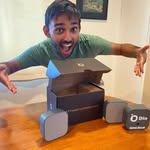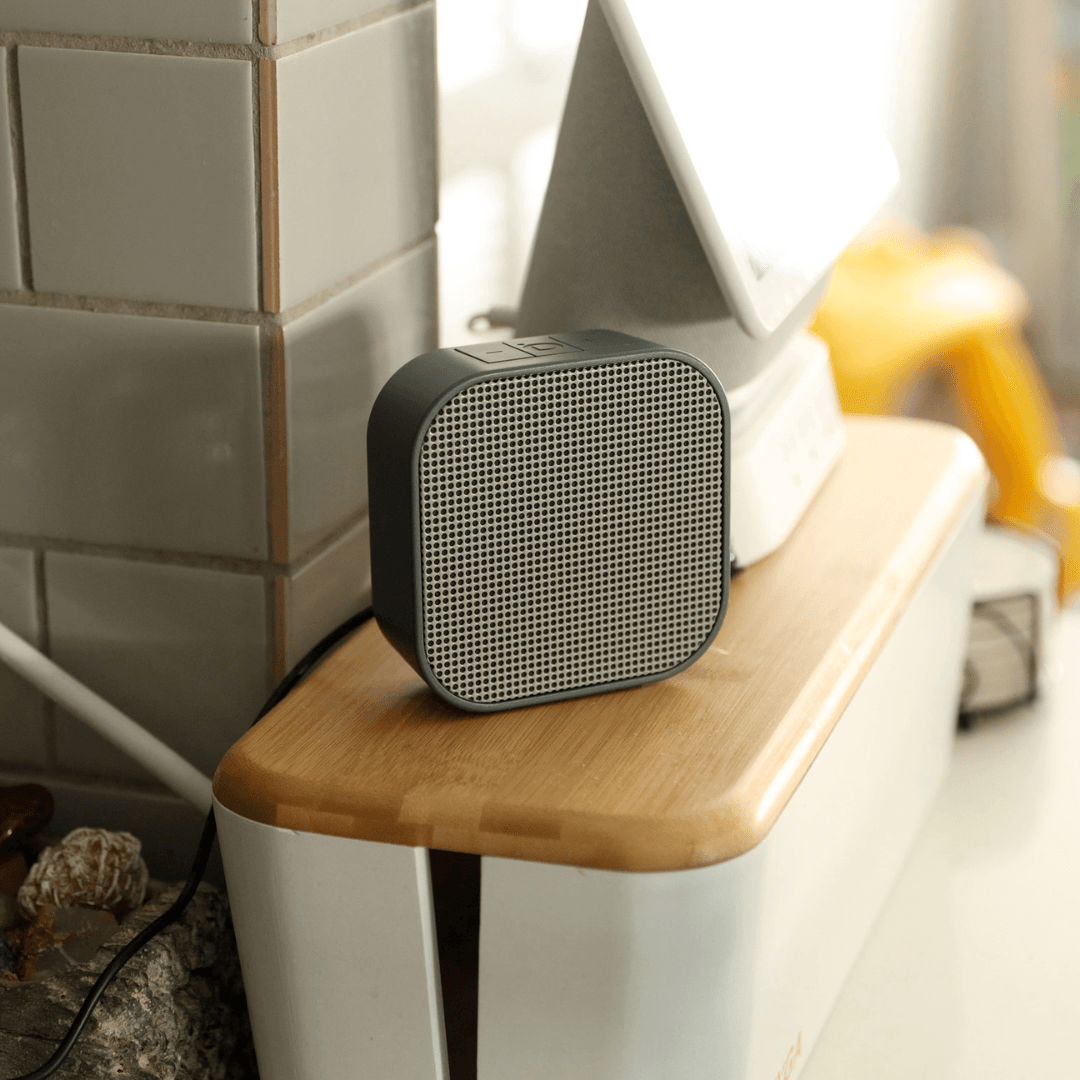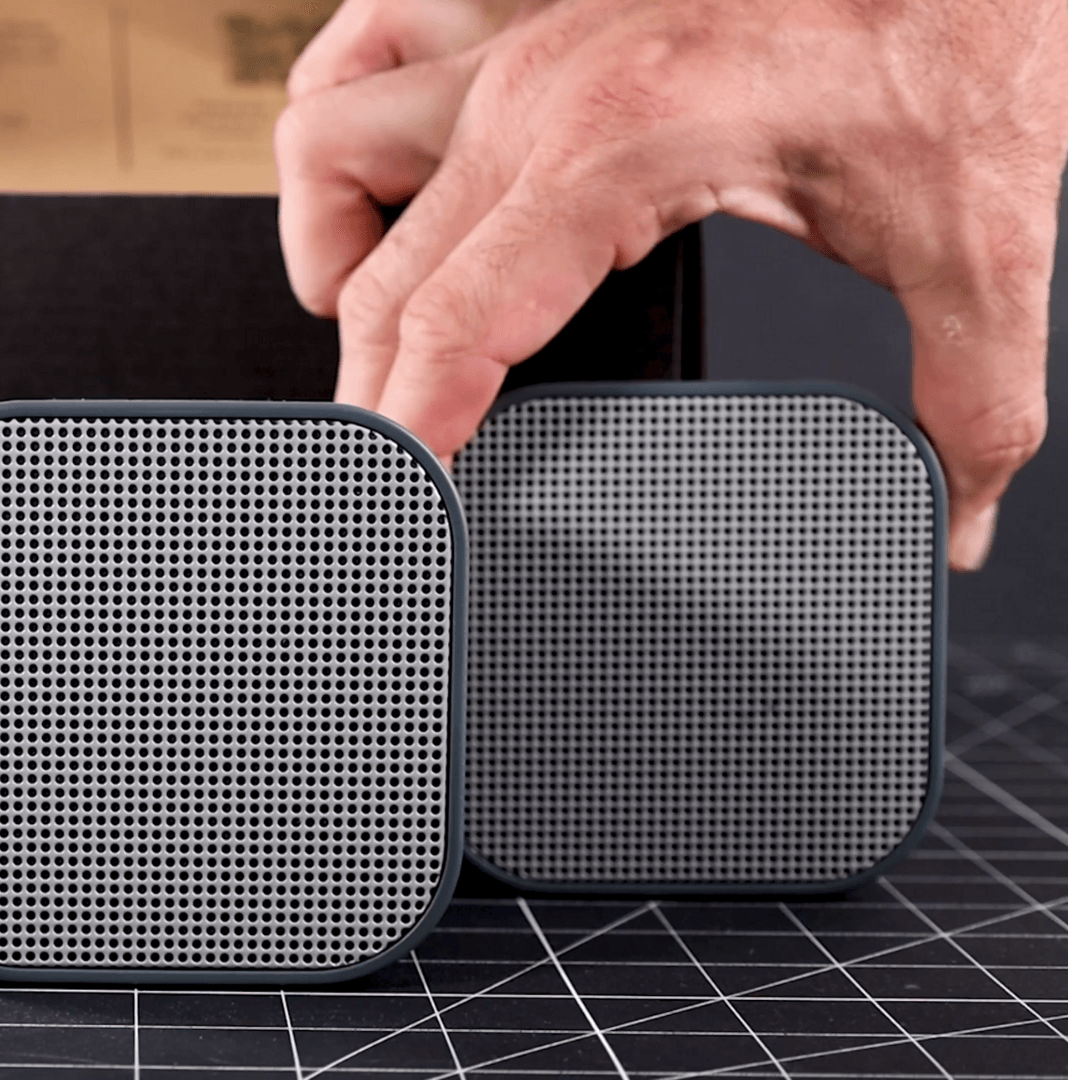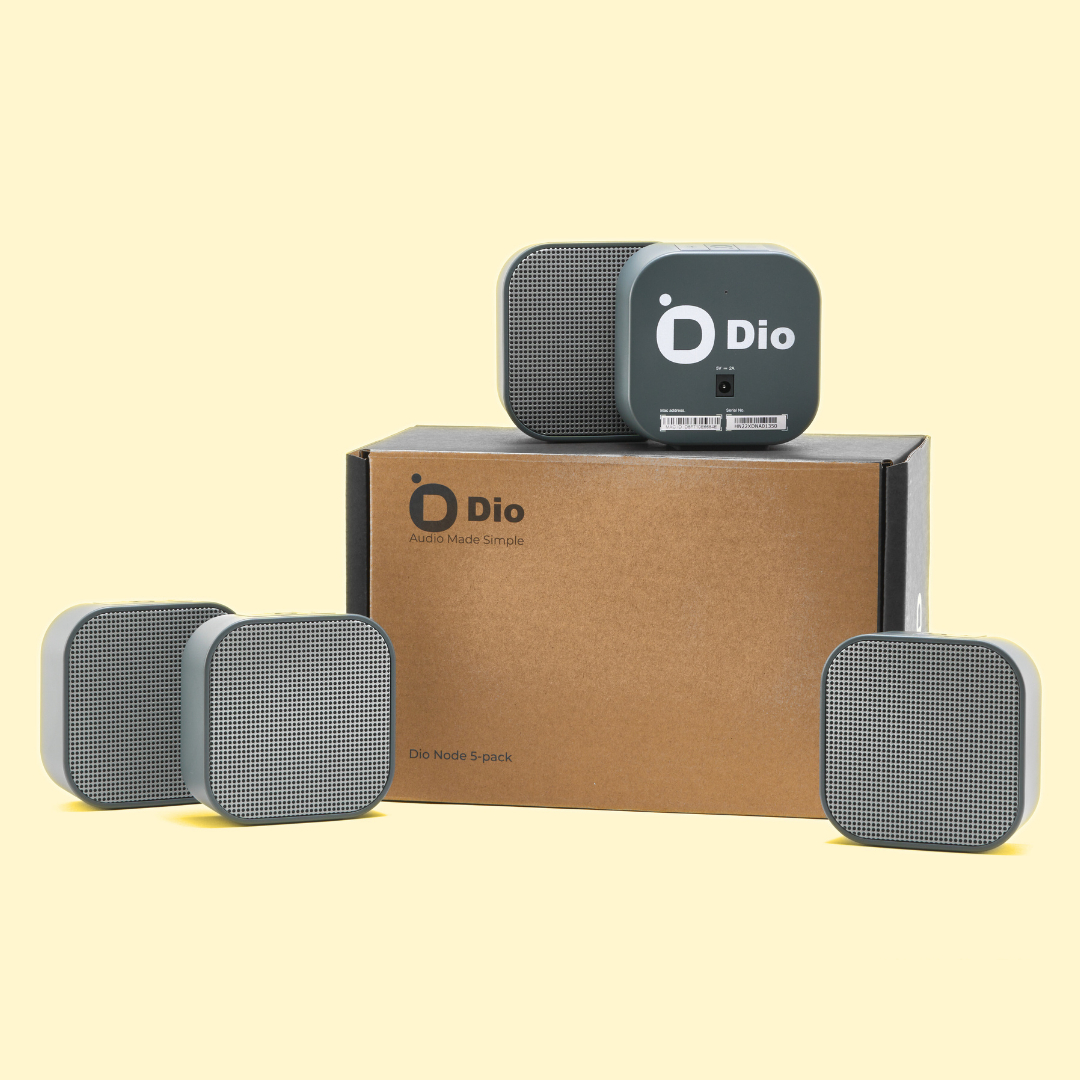Today we’d like to introduce you to Akarsh Vinod.
Hi Akarsh, it’s an honor to have you on the platform. Thanks for taking the time to share your story with us – to start maybe you can share some of your backstory with our readers?
My journey with Dio started in 2019, but the idea had been brewing for much longer. I’ve always been passionate about great audio, but I found that most home audio systems were either too complicated, too expensive, or too intrusive with built-in voice assistants and data tracking. I wanted a simple, private, and flexible way to stream music throughout my home—so I set out to build it myself.
At the time, I had just started my MBA, which gave me the perfect opportunity to validate the idea, refine the business model, and develop a plan to bring Dio to life. By the time I graduated, I had working proof-of-concept prototypes, a full business plan, and a manufacturing partner lined up. Just a few months later, I officially kicked off development on what would become Dio Node.
My background played a huge role in making this possible. I started my career as an engineer in the auto industry before transitioning into supply chain and manufacturing roles. Later, at Meta, I worked as a Global Supply Manager, sourcing and managing manufacturers for products like the Oculus Quest and Ray-Ban Meta smart glasses. That experience gave me the skills to build a global supply chain and bring a new consumer electronics product to market.
Dio launched on Indiegogo in 2022, and we officially released our first product in 2023. From the start, Dio has been built around three key pillars: Simplicity, Flexibility, and Privacy. Our speakers are designed for people who just want high-quality multi-room audio without dealing with complex setups, expensive ecosystems, or invasive smart assistants. The response has been incredible—customers love how easy it is to use Dio, and we’re seeing strong repeat purchases as people expand their setups.
I continued running Dio as a side business while working full-time at Meta, but just recently at the start of this year, I made the leap to go all-in on Dio. The company had proven itself with steady growth, and I realized that the only thing holding it back was my own bandwidth. Now, my full focus is on growing Dio into the go-to wireless speaker system for people who just want great sound—without the headaches.
We all face challenges, but looking back would you describe it as a relatively smooth road?
No startup journey is ever a completely smooth road, and Dio has been no exception. From product development to manufacturing to marketing, every stage has come with its own challenges.
One of the earliest hurdles was the sheer complexity of building a hardware product as a solo founder. Unlike software, where you can iterate quickly, hardware requires upfront investment, long lead times, and meticulous planning. I kicked off Dio Node’s development in August 2021—right in the middle of the global supply chain crisis. Component shortages meant I had to place large, expensive orders for key parts with 52-week lead times just to ensure we could launch on schedule. Managing cash flow while navigating these unpredictable delays was one of the biggest financial challenges early on.
Manufacturing also brought unexpected roadblocks. Even with my background in supply chain and my careful selection of a manufacturing partner, our first batch of inventory had a critical issue: the wrong firmware had been uploaded, preventing users from setting up their speakers. It was a stressful situation, but fortunately, we found a workaround that allowed customers to get their devices working. The experience reinforced an important lesson—no matter how much you plan, things will go wrong, and having a strategy to respond quickly is just as important as preventing issues in the first place.
Beyond manufacturing, the biggest challenge has been growing Dio in a crowded market. Competing with billion-dollar companies like Sonos and Amazon is no small feat, especially with their massive marketing budgets. But instead of trying to outspend them, I focused on differentiation. Dio isn’t just another speaker—it’s a product designed for people who want multi-room audio without the complexity, cost, or privacy concerns of other systems. That message has resonated with customers, and word-of-mouth has been one of our biggest growth drivers.
Most recently, the hardest decision I had to make was leaving my full-time job at Meta to focus on Dio. It meant giving up stability and taking on more personal risk, but I knew that if I didn’t commit fully, the business would never reach its true potential. Now, my focus is on scaling Dio, improving our products, and making multi-room audio accessible to even more people.
It hasn’t been an easy road, but every challenge has been a learning experience. And seeing customers love the product and come back to buy more speakers makes it all worth it.
Great, so let’s talk business. Can you tell our readers more about what you do and what you think sets you apart from others?
Dio is all about making it effortless to listen to your audio all across your home. We create wireless speakers designed for people who want sound throughout their home—without the complexity, high price tags, or privacy concerns of traditional smart speakers and home audio systems.
What sets Dio apart is our focus on simplicity, flexibility, and privacy. Unlike other systems that require expensive hubs, proprietary apps, or closed ecosystems, Dio is designed to work seamlessly with devices people already own. Our speakers integrate directly with Apple’s AirPlay, allowing users to stream audio from their iPhone, iPad, Mac, or Apple TV with just a tap. There’s no need to download an extra app or create an account—just connect and play.
Another key differentiator is that Dio speakers don’t have built-in microphones. In a world where most smart speakers are always listening, we take a different approach. We believe great technology doesn’t have to come at the cost of privacy. Our products deliver premium wireless audio without collecting data or tracking user behavior.
I wanted to set Dio apart in more ways than just the tech features, and one of the ways we do so is, counter-intuitively, by designing Dio Node to blend into home decor. While many audio brands focus on flashy, high-tech aesthetics, we prioritize a minimalist, home-friendly design. Our speakers are compact, discreet, and built to complement any space rather than dominate it. That way, we take “hassle-free” to the next level – by making sure you don’t have to think twice about even the small concerns like “Where should I place the speaker in my home? Will it fit my decor?”.
All that said, what I’m most proud of is how much our customers love the product. We’ve seen that once someone tries Dio, they often come back to buy more speakers to expand their setup. That tells me we’re solving a real problem and delivering a great experience. I’ve had a number of customers write to me thanking me for finally making something that just works, especially after their all-too-arduous journeys of trying the clunkier and more expensive options in the market.
At its core, Dio is built for everyday music lovers—not just audiophiles or tech enthusiasts. I believe that everyone should be able to enjoy high-quality, whole-home audio without hassle, and that’s what drives everything we do. Ultimately, I think we’ve really created the listening experience that every home deserves, and I’m excited to continue sharing it with more people.
We’d love to hear about any fond memories you have from when you were growing up?
This one’s a tough one, because I can’t really pinpoint any particular “favorite”. However, growing up I was a total band geek. I played percussion and the drums, and was signed up for nearly every after school music club imaginable – band, percussion ensemble, jazz band, community orchestra, and even a rock band with other kids in my neighborhood. I think that’s how I developed my love for audio, and why I prefer listening to audiobooks and podcasts over reading books and articles! I still treasure all of my memories in these various musical environments growing up, and still count many of those fellow musicians among my very best friends today.
Pricing:
- Dio Node Single Speaker: $89.95
- Dio Node 3-Pack: $239
- Dio Node 5-Pack: $399
Contact Info:
- Website: https://dioconnect.com
- Instagram: https://www.instagram.com/diospeakers/
- Facebook: https://www.facebook.com/diotech
- Twitter: https://x.com/DioTechnologies
- Youtube: https://www.youtube.com/@diospeakers







